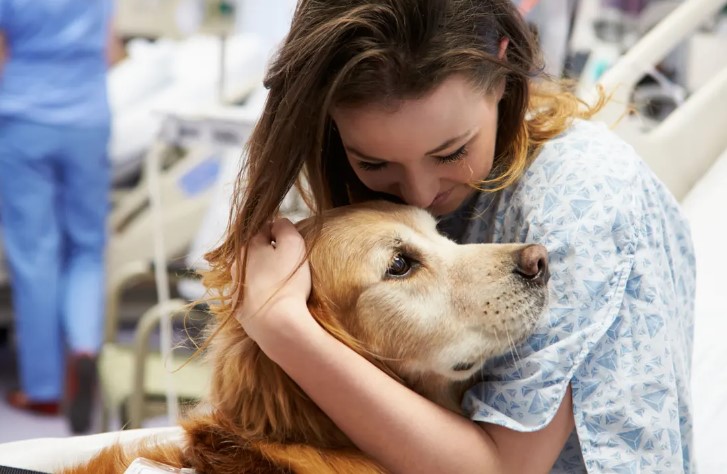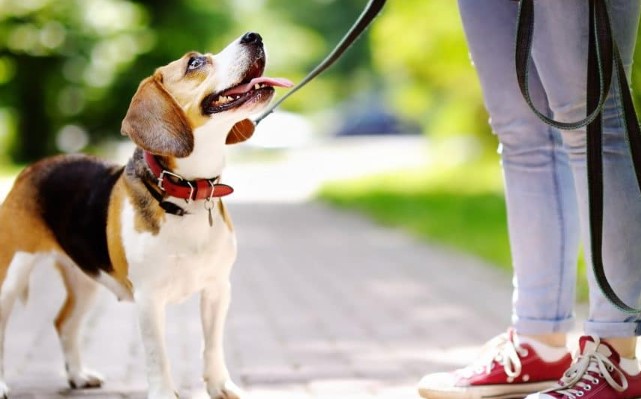
Understanding the Benefits of Socialization for Your Canine Companion
Key Takeaways:
- Unpacking the pivotal role of socialization in developing a well-behaved, confident dog.
- Strategies for identifying and leveraging socialization opportunities in everyday life.
- Understanding the psychological implications of socialization on a dog’s mental well-being.
- Approaching socialization challenges with patience and knowledge to help timid dogs.
- Insights into the role of dog parks and daycares in facilitating canine social development.
- Creative training tips and behavior insights for socializing dogs of all ages.
Table of Contents:
- The Importance of Dog Socialization
- Identifying Key Socialization Opportunities
- Socialization and Mental Health in Dogs
- Overcoming Socialization Challenges
- The Role of Dog Parks and Daycares in Social Development
- Training Tips for Socializing Your Dog
- The Impact of Socialization on Dog Behavior
- Socialization During and After the Pandemic
- Integrating Social Skills into Everyday Life
- Final Thoughts on Enhancing Your Dog’s Social Life
The Importance of Dog Socialization
Many dog owners may overlook socialization as a critical element in raising a happy and well-adjusted dog. It is more than playtime; it’s a foundational aspect of a dog’s psychological development. Socialization introduces dogs to various situations, sounds, people, and other animals they will encounter throughout their lives, setting the stage for how they perceive and respond to the world around them. The consequences of inadequate socialization can be severe, potentially leading to behavior problems such as unnecessary aggression or debilitating fear.
In the first few months of a dog’s life, there is a critical window—often referred to as the ‘socialization period’—which marks the optimal time for exposure to new experiences. During this stage, puppies are naturally curious and more accepting of unfamiliar things they may later be apprehensive toward as adult dogs. Maximizing this period with positive experiences that build confidence and prevent the onset of behavioral problems is essential. Regarding adult dogs, remedial socialization can be significantly more challenging, requiring a considerate and measured approach to avoid further behavioral complications.
A proactive step is to engage with professionals who understand the value of dog socialization. For example, selecting a dog day care Jacksonville FL, that emphasizes social activities can be invaluable, as it provides a structured and secure setting where your dog can learn and grow socially.
Identifying Key Socialization Opportunities
Even within the hustle and bustle of daily life, there are countless opportunities to promote your dog’s social skills. Every encounter, whether with another pet or a human, is a chance for your dog to learn proper behaviors and responses. For many pet parents, dog parks offer an excellent venue for free play and interaction, but paying attention to the quality of these interactions is essential. Structured play sessions, such as those in obedience classes or designated playgroups, can provide additional safety and guidance, ensuring positive dog experiences.
Understanding and utilizing a dog’s inherent way of communication is critical. Canine body language can be subtle, but reading these cues can prevent misunderstandings and conflicts during socialization. Tail wags, play bows, and vocalizations all have specific meanings in canine communication, and giving your dog a chance to interpret these signals within various contexts is paramount to their social education. This mastery of ‘dog language’ facilitates better interactions with other dogs, enhances the efficacy of training sessions, and deepens the bond between pets and their owners.
Socialization and Mental Health in Dogs
The benefits of social experiences are manifold, extending beyond mere behavior correction to influencing a dog’s emotional well-being. A well-socialized dog is typically more confident and less prone to stress-induced behaviors. Engaging in social activities can provide an outlet for energy and serve as a buffer against the development of anxiety and related disorders. Utilizing play and interaction in balance with rest and downtime can lead to a more prosperous, more contented life for your pet.
Positive reinforcement plays a crucial role in this regard. When a dog encounters a new or potentially stressful social situation and has a positive experience (aided by treats or praise from their owner), they are likely to remember this and react more confidently. This methodology positions socialization as a prevention against negative behaviors and a proactive approach to fostering psychological resilience in our canine companions.
Overcoming Socialization Challenges
Not every dog will be a social butterfly from the outset, and that’s okay. Some dogs may take a little longer to warm up to new experiences, or they may have had past experiences that make them more hesitant to engage socially. For these dogs, socialization has to be a slow and steady process. By establishing a trust-filled relationship, pet owners can gradually introduce their dogs to new experiences positively, praising and rewarding them for their bravery and progress. For instance, starting with quiet, controlled encounters can lay the groundwork, moving on to more lively environments as your dog becomes more assured.
Dog daycares can provide an intermediary step by offering controlled socialization environments. Here, dogs can learn social cues and play behaviors safely under the supervision of trained staff, making them ideal for owners looking to socialize their dogs in a structured setting. Choosing a daycare that understands these requirements is essential, prioritizing your pet’s safety, comfort, and gradual development.
The Role of Dog Parks and Daycares in Social Development
The urban pet owner’s lifestyle often means that long work hours can impede consistent socialization efforts. Dog parks and daycare facilities can fill this gap, accommodating your pet’s needs for social engagement in your absence. The dynamic environments offered by parks can be both stimulating and educational for dogs, yet it’s essential to be vigilant about safety and suitability. Not all dogs are suitable for the boisterous and potentially unpredictable nature of dog parks, particularly if they’re still building their social confidence.
Choosing a suitable daycare facility becomes crucial. A good daycare offers varied activities that cater to both active play and times of rest, mimicking the natural rhythms dogs would experience in their home environments. They should also maintain a staff-to-dog ratio that ensures individual attention and care, preventing negative interactions and promoting positive ones. Before enrolling your dog, a visit can provide insights into the facility’s operations and whether it will fit your pet well.
Training Tips for Socializing Your Dog
Obedience training lays the groundwork for any socialization plan. A dog responsive to commands is safer in social settings and more confident, knowing they can rely on their owner’s guidance. When doing obedience work, consistency is critical; it builds trust and helps establish clear expectations for your dog. Using commands like ‘sit,’ ‘stay,’ and ‘leave it’ in conjunction with socialization efforts allows pet parents to direct their dogs in potentially overwhelming situations, ensuring a positive outcome.
Understanding your dog’s social threshold is just as crucial as incremental training. Take note of any signs of discomfort, such as excessive lip licking, yawning, or avoidance, and be ready to step back and give your dog a break if needed. Celebrating small victories is vital – each successful interaction is a step towards a well-socialized dog.
The Impact of Socialization on Dog Behavior
Like humans, a dog’s personality and behavior are shaped by its experiences. Dogs that interact with various species, environments, and people often develop more adaptable, agreeable personalities. Research and case studies, like those from the American Kennel Club and various animal behaviorists, show that socialization has far-reaching effects on a dog’s demeanor and can even reduce the likelihood of specific behavioral issues later in life.
These studies often highlight the transformation that dogs undergo after consistent positive socialization. Pets that were once shy or aggressive can exhibit remarkable behavioral improvements, showcasing the profound impact that an enriched social life can have.
Socialization During and After the Pandemic
The recent pandemic has significantly disrupted routine socialization avenues for pets, pushing owners to find creative and safe alternatives. With the lockdowns limiting access to group classes, parks, and even routine walks, pet owners have been forced to innovate at home. Simple games, makeshift agility courses, and exposure to various sounds and objects at home helped maintain some level of engagement.
As we transition into a post-pandemic environment, the challenge lies in reintroducing our pets to social scenarios they may not have encountered for a long time. Observing how our dogs respond to these changed circumstances will be vital in calibrating our socialization approaches effectively. Incremental exposure to busier environments, accompanied by positive reinforcement, can ease our pets into this “new normal,” ensuring their social skills are not left behind.
Integrating Social Skills into Everyday Life
Integrating socialization into a dog’s daily routine is about seizing the small moments. Meeting with a neighbor during your morning walk, encountering delivery people, or simply spending time with family and friends presents unique learning opportunities. These everyday interactions are critical to your dog’s social education and help cement the desired behaviors and habits. By approaching these daily situations with a trainer’s mindset, pet parents can turn even the most mundane activities into rich, educational experiences for their dogs.
Each interaction matters as these repetitions teach dogs what to expect from the world around them and how to react accordingly. The goal is to create a diverse tapestry of positive experiences that give your dog the confidence and ability to navigate an array of social scenarios with grace and poise.
Final Thoughts on Enhancing Your Dog’s Social Life
In conclusion, socialization should be viewed as an ongoing process rather than a checklist item to be completed. The investment in your dog’s social life will be returned tenfold through their behavior and the overall quality of the bond you share. Dog owners can ensure their pets lead fulfilling, balanced lives by providing various social experiences, appropriate training, and constant support. Always remember, the socialization journey is as rewarding for the owner as it is for the dog—a journey of growth, understanding, and strengthening the remarkable bond we share with our canine friends.




